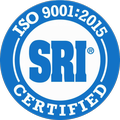 Getho bí thogi goho ya jä'i ne perder ar be̲xu, ya industrias aeroespacial ne militar nzäm'bu̲ gi 'bu̲hu̲ abiertas ma idea nä'ä bí utilicen ar metales xí ligeros pa gu̲ts'i yá componentes ya da cuanto mäs ligera nä'ä ar carga., ar zu'we consumo combustible requerido, kwati nja'bu̲ bojä.
Getho bí thogi goho ya jä'i ne perder ar be̲xu, ya industrias aeroespacial ne militar nzäm'bu̲ gi 'bu̲hu̲ abiertas ma idea nä'ä bí utilicen ar metales xí ligeros pa gu̲ts'i yá componentes ya da cuanto mäs ligera nä'ä ar carga., ar zu'we consumo combustible requerido, kwati nja'bu̲ bojä.
Nu'bu̲ 'na bí diseñar 'nar nsa̲ni bo̲jä ngut'ä ligero komongu 'nar pluma, revolucionaría ya viajes aéreos, Na za? Pozo, aircraft have typically been made of aluminum alloys, ko acerca ar 50% of the aerospace materials market by volume consisting of aluminum, according to a MarketsandMarkets research report. But here’s where it gets interesting: next-generation planes will, indeed, be lighter than their older counterparts thanks to more and more aircraft components being made from titanium. This material is the rising star in the aerospace and military industries.
Besides titanium gaining momentum, advanced technologies are being applied to aluminum to make it more weight-and-cost efficient than before. A high-speed, vacuum-aided aluminum die-casting process along with heat-treating is being developed by Boeing and Ohio State University. They’re also utilizing computer models to test how well titanium alloys perform in aircraft engines and turbine fans. Lead times for the development of new and improved aerospace designs are decreasing as technology helps reduce costs of both materials and testing.
'Nehe, it has been discovered that aluminum-lithium alloys are stronger and lighter than aluminum alone. While previous generations of aluminum-lithium alloys couldn’t stand high temperatures and/or cracked under pressure, today’s generation performs much better. Thanks to integrated computer models, researchers continue to understand, predict and simulate how the use of aluminum-lithium materials and their properties evolve during industrial uses.
Ngäts'i, expect beryllium-aluminum alloys to become more popular, as Lockheed Martin has just accepted delivery of the first completed azimuth gimbal housing components made of this combination. Beryllium-aluminum alloys are stiffer than just aluminum alone, while weighing less.
For your alloy needs, Eagle Alloys offers the highest quality materials at the most competitive pricing. Xekwi 800-237-9012 for details.






